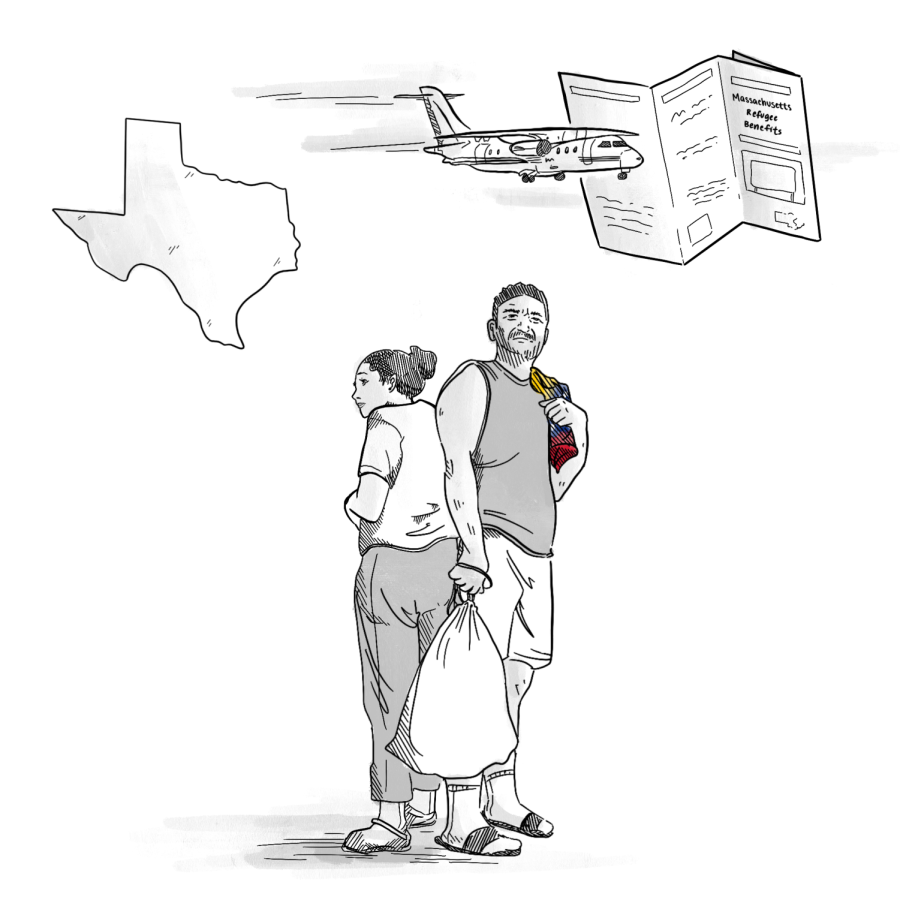DeSantis’ Newest Attempt to Rid the Country of Immigrants, One Plane at a Time
November 8, 2022
Last month, Florida Governor Ron Desantis flew 48 asylum-seeking immigrants from San Antonio, Texas to Martha’s Vineyard, Massachusetts. Those on the plane were promised an opportunity for expedited work papers in Boston by a mysterious woman named “Perla.” Instead, they were taken to an unsuspecting Martha’s Vineyard, where locals of the small town attempted to disentangle the situation with the help of high school Spanish students and the local church shelter.
Amid recent legal action on behalf of the immigrants, the DeSantis administration has been reluctant to respond to the ensuing media frenzy, but their connection to the flights is hard to ignore. DeSantis chartered the flights back in June, setting aside $12 million of taxpayer money for a transportation budget to move immigrants anywhere but in Florida. In fact, in the immediate aftermath, DeSantis himself didn’t hesitate to take credit.
DeSantis is not alone in his efforts to send the South’s growing population of immigrants north, even if that means one bus at a time. Texas’ Greg Abbott is yet another Republican governor taking part in an effort to give Northeastern democrats what it seems they’ve been asking for: more immigrants. Buses full of asylum seekers and recent immigrants have been sent to New York, Chicago, and Washington, D.C., where Abbott faced similar moral criticisms.
As the details of the flight unfold, DeSantis’ claim of legitimacy is becoming increasingly threatened. While the immigrants don’t seem to have been forced on the bus, the process was far from transparent, if not outright criminal. Fake documents promising state resources for employment and citizenship were reportedly used by those working under DeSantis’ command, some of whom were also stationed outside of asylum shelters with half-translated papers and contracts.
Democrats have condemned these moves as heartless political stunts. “We feel so comfortable traumatizing people for these little political victories,” explains Birikti Kahsai ’23. “It reveals the extent to which we see migrants not as people, but as political commodities.”
DeSantis argues he was acting not only in the interest of Massachusetts, one of many left-leaning states pushing for fewer restrictions on immigration, but also on behalf of the immigrants themselves, claiming, “We are not a sanctuary state. And it’s better to be able to go to a sanctuary jurisdiction.”
DeSantis doesn’t seem to be wrong in his predictions about some Northeastern states being more accommodating. Max Klumb ’25 describes how he believes Cambridge would react, had immigrants reached the city: “I would hope something would be done to accommodate them and help them find a place in the community.”
This not only suggests an apparent declaration of Florida’s views on growing federal immigration change—not necessarily surprising, though particularly valuable in the dawn of an upcoming midterm election—but also a frightening shift in the way our current political divide manifests itself in policy. Gone are days of arduous bureaucratic snubs within walled chambers; the fight between red and blue is now on the streets, in the skies, and within the boundaries of real people’s lives.
This piece also appears in our October 2022 print edition.











